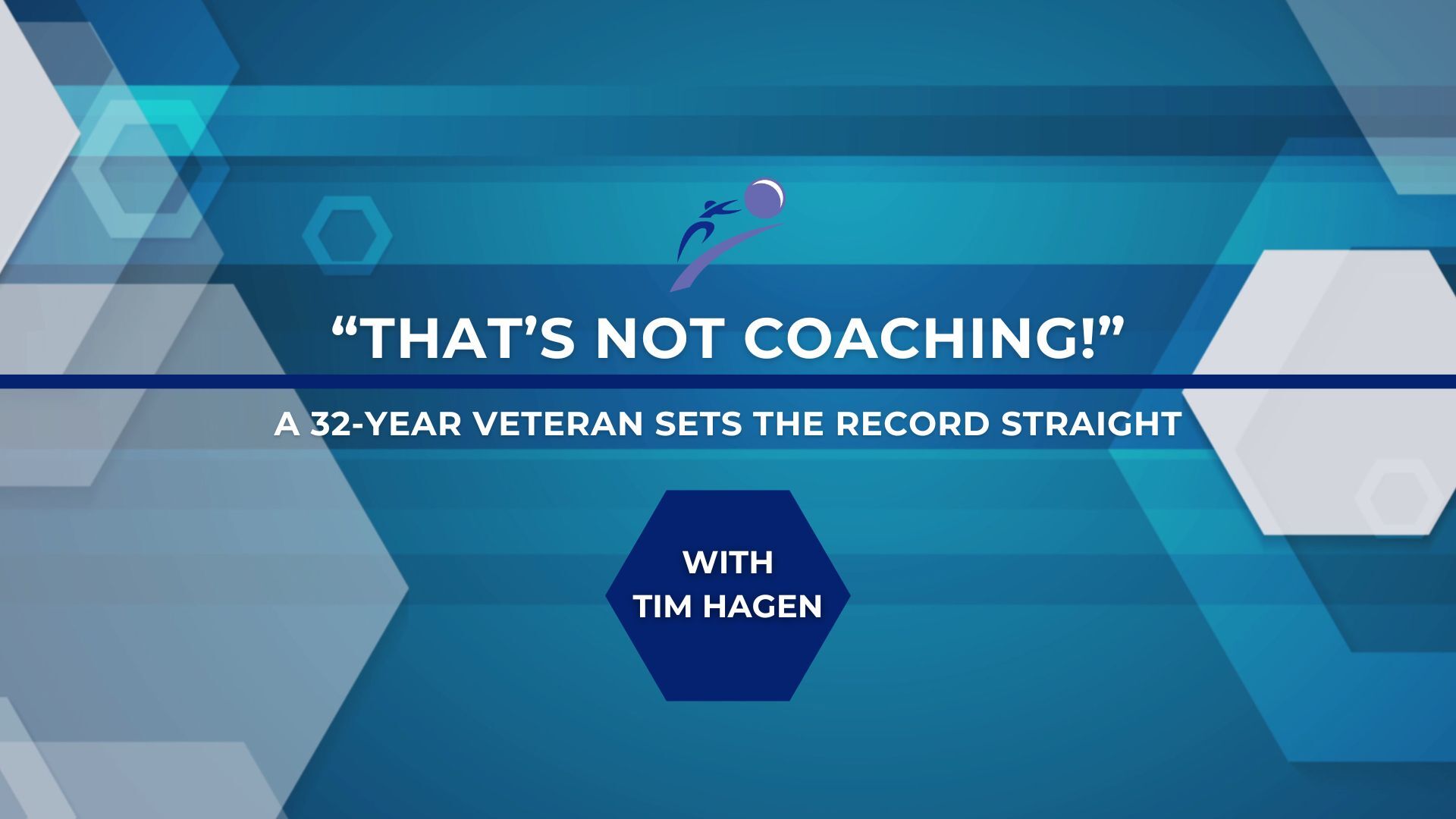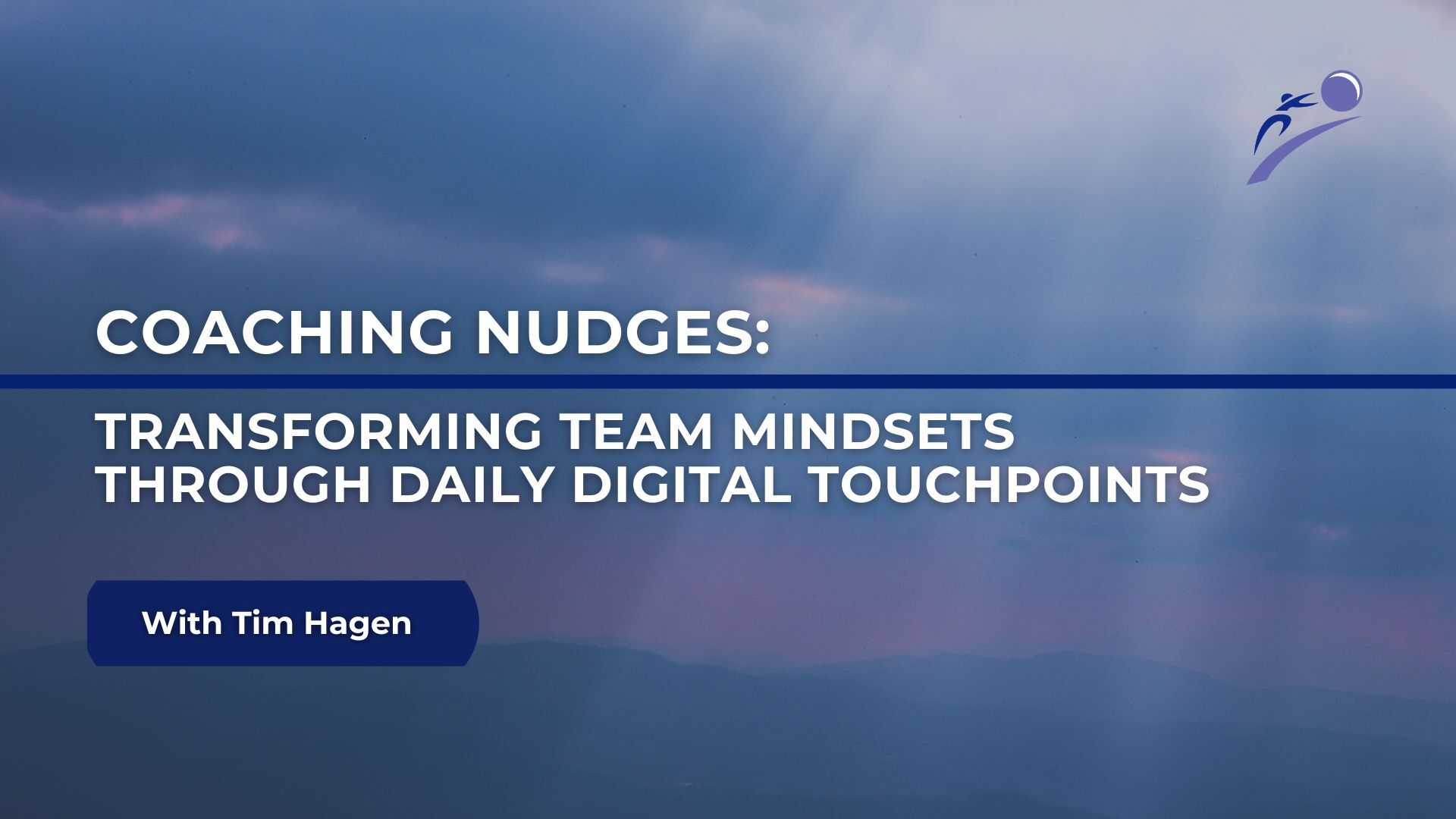Breaking Down Resistance to Coaching
Have you ever wondered how to get leadership to buy in for coaching initiatives? Here’s a secret—it doesn't always have to be about coaching. In this one, we unravel the art of coaching without asking to coach, using a real-life example that demonstrates the significant impact of coaching on concrete business objectives, like boosting sales.
In this conversation, we get under the skin of how coaching can transform areas such as handling objections, selling value, and dealing with pricing in a sales scenario. We also explore the concept of 'tiers of learning' – knowledge, skill, and behavior, emphasizing the crucial role of practice, repetition, and positive reinforcement in modifying behaviors. If you’re interested in learning about creating enjoyable mini-reinforcement plans and understanding the role of L&D professionals in nurturing a coaching culture, this one is for you.
See how we introduced coaching as training reinforcement plans to a sales leader who initially resisted the idea due to time constraints. Spoiler alert—it worked!
Recently, I did a webinar with one of my favorite companies in the world, Training Magazine. We always do stuff on coaching and training, and I had a couple of questions from people asking how we get buy-in from leaders to coach.
This is about training departments, or L&D departments, learning how to coach leaders to coach-- without asking them to coach.
Doesn't make sense, does it?
Let me give you an example with a quick story.
We were in an organization, and the VP of Sales asked about a training program. When coaching came up, I remembered this reaction. He said, "We don't have time, we're really busy." Not once did he say, "Do you think that'll raise our numbers? Will that help our leaders? Will that help our people sell more?" His immediate triggered reaction was to push back, which demonstrated an emotional tenet of self-regulation. He was going to put his people through training without reinforcement. It made no sense.
What we have to do as learning and development professionals is to learn how to coach people so they will coach without even asking them to coach.
In this meeting, I looked at him and didn't fight that response. Instead, I said, "It sounds like you're really busy."
VP "Yeah, we are. We just don't have time to coach."
Me: "Let me ask you something. Where are the numbers this year?"
VP: "We're a little flat-lined. Up a couple points."
Me: "Okay. What's the goal next year? What's your objective?"
VP: "I've been told we need to get our sales up 10 points."
Me: "Wow, that's an 8% increase from a year that, according to you, you're only up two points. Give me the three areas that, boy, if your salespeople did XYZ better, what are the first three things that come to your mind?"
VP: "Handling objections, selling value, and handling price."
Me: "Awesome. Do you mind if I dive a little deeper?" When he agreed, I continued. "When you get to price, and someone says your product/service is too expensive, what do you want your people to do?"
VP: "They have to sell value."
Me: "Okay, let's dig deeper. That's a narrative. You're narrating at a high level the expectation. In that moment, what do you want them to do and say?"
VP: "I don't know. I'd have to ask my leaders."
Me: "What do you think they're saying?"
VP: "I don't know."
Me: "Let me ask another question. I already know the answer, so this is a trick question." He started laughing. "When it comes to price, how often do your salespeople get nervous and ask your leaders if there's a way to lower margins a few points to push this deal through?"
VP: "All the time." I smiled at that. He asked, "What are you getting at?"
Me: "There's something called the tiers of learning: knowledge, skill, and behavior. Training will give you the knowledge. Skill will be through practice and repetition. Confidence, the behavioral component, comes from practice, repetition, and positive reinforcement. If your people were given a proven progression and they were conditioned to handle these responses for price and selling value and handling various objections, and it got you those eight points or potentially beyond, and in a very short timeframe they were highly skilled in those three areas, how would you feel?"
VP: "I love it."
Me: "What would your willingness be to participate?"
Notice, I did not say coaching.
VP: "I would do anything."
Me: "What if we created some mini-reinforcement plans? We set up practice sessions so your sales leaders could execute, and we could teach them some positive reinforcement strategies to get people feeling good about practicing, because most people hate role-playing. What if we made it enjoyable? What if people enjoyed it? And they started to become more confident, not giving away margin?"
VP: "I'd be a willing participant."
Me: "Let me work with the L&D team. I have some ideas. Would you mind if we got back together and we crafted a strategy?"
I was not selling anything. I was already under contract. Little did he know I got an agreement on coaching. I didn't call it coaching; I called it training reinforcement plans.
What if we made it easy? Remember his first reaction: We don't have time to coach?
Remember, we as training, learning, and development professionals, we have to learn how to coach to get other people to coach.
Questions to Ask for Those Resistant to Coaching:
-
When you think of change, what's the first word that comes to your mind?
-
What's an area in your life where you embraced change and it served you well? How can we bring that mentality here?
-
What do you think is your greatest strength when it comes to your ability to be coached? What do you think might be hindering your ability to receive coaching?
-
On a scale of 1 to 6 (6 is you seek and accept change, and 1 is you tend to shy away from it because you feel like your plate is already full), where would you rate yourself and why? (After their response, ask...) what do we need to do to move you toward a 6?
-
What are you willing and able to do to engage in and embrace this change?
-
When it comes to feedback, where do you feel like you have 2 strengths? What is one area you need to improve when it comes to seeking and accepting feedback, ultimately raising your level of coachability?
If you're looking for a way to strengthen your organization, ask about our Coaching Champion Certification program, where we take everyday employees and use everyday conversations to strengthen the organization's culture. Coaching Champions inspire and motivate others and professionally challenge those who struggle with positivity.
Get More info Here: click here






